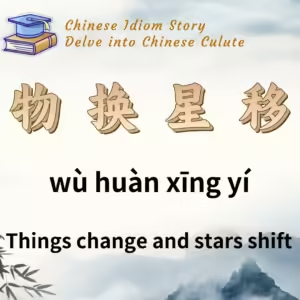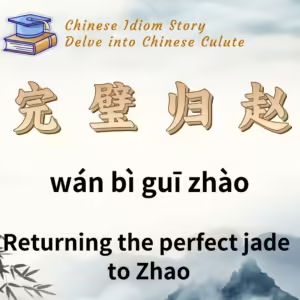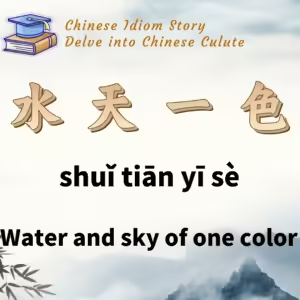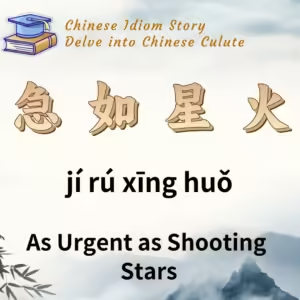
Chinese Idiom: 物换星移 (Wu Huan Xing Yi)
English Translation: Things change and stars shift
pīn yīn: wù huàn xīng yí
Idiom Meaning: This idiom metaphorically describes the passage of time, indicating how the world undergoes constant change and how seasons come and go, reflecting the impermanence of life.
Historical Source: Wang Bo’s poem Teng Wang Ge Xu (《滕王阁序》) from the Tang dynasty.
Idiom Story:
In his famous prose poem, Wang Bo vividly describes the grandeur of the Tengwang Pavilion overlooking the river. He paints a picture of the pavilion adorned with jade accessories and the sounds of bells signaling the end of a joyous gathering. As the day transitions, he observes the clouds above the southern banks and the rain falling on the western mountains. Amidst these reflections, he contemplates the serene floating clouds and the tranquil water beneath them, illustrating a sense of timelessness.
The poignant lines “物换星移几度秋” express the inexorable passage of time, suggesting that as seasons change, so too do the circumstances and people around us. The imagery evokes a sense of nostalgia, pondering the fate of the Pavilion’s original builder, Prince Yuan Ying, as he muses on the relentless flow of the Yangtze River.
Over time, the phrase “物换星移” has come to encapsulate the broader notion of change and transformation in the world, serving as a reminder of life’s transient nature and the ever-evolving landscape of existence.






